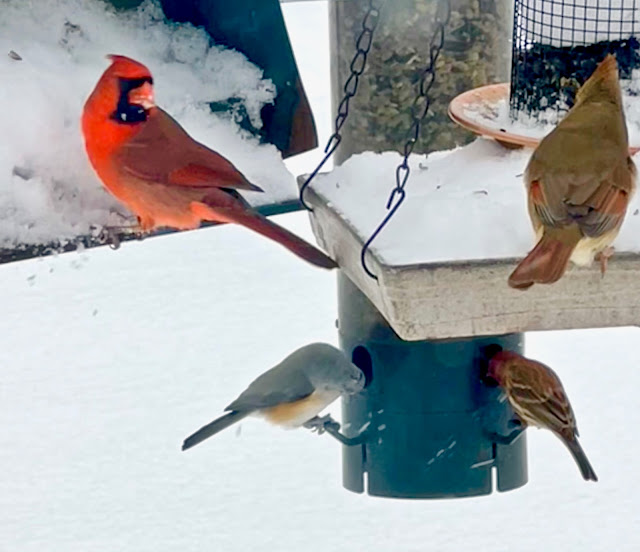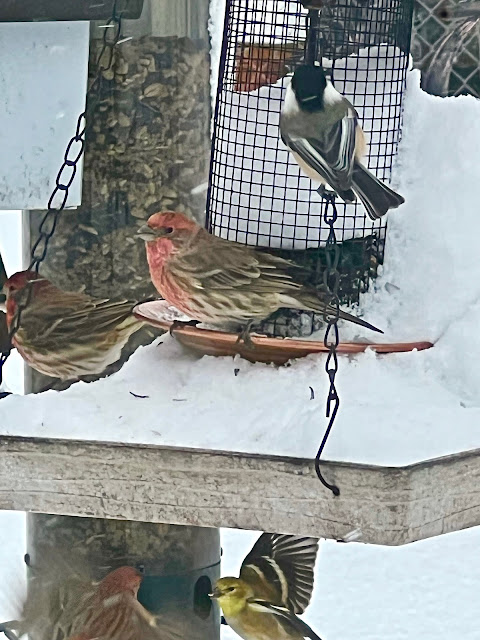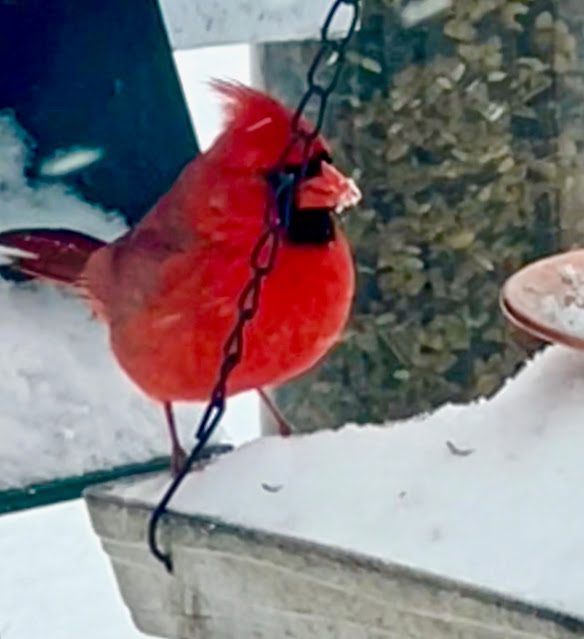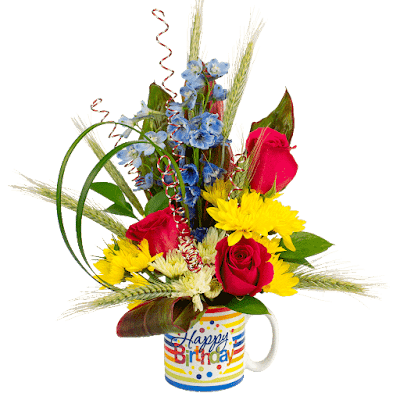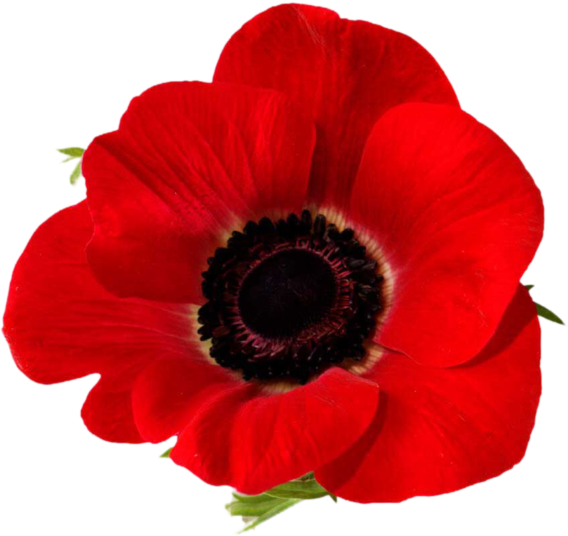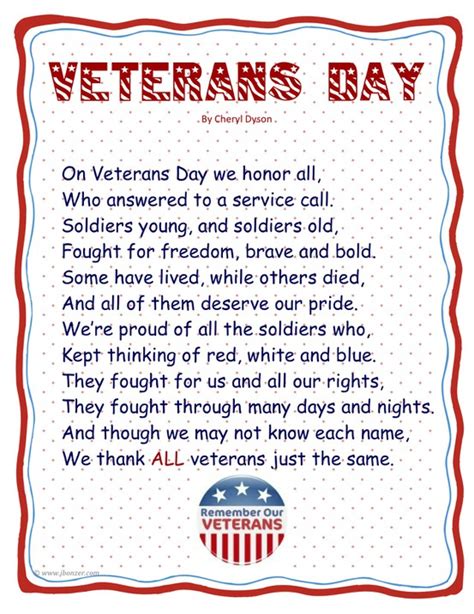Today, November 11th, is Remembrance Day in Canada where petcretary came from, and its Veteran's Day in the USA.
Canadians remember and honor all veterans, the living and those who gave all for the freedoms Canada and the western world have. Also known. as Armistice day in some countries. Red Poppies are worn to help commemorate the day, and it refers back to the poem known as In Flanders Fields. That poem was written in Belgium, by a Canadian doctor, John McCrae
In Flanders fields the poppies blow
Between the crosses, row on row,
That mark our place; and in the sky
The larks, still bravely singing, fly
Scarce heard amid the guns below.
We are the Dead. Short days ago
We lived, felt dawn, saw sunset glow,
Loved and were loved, and now we lie,
In Flanders fields.
Take up our quarrel with the foe:
To you from failing hands we throw
The torch; be yours to hold it high.
If ye break faith with us who die
We shall not sleep, though poppies grow
In Flanders fields

John McCrae
1872–1918
Born in Guelph, Ontario, Canadian poet, soldier, and physician John McCrae earned his undergraduate and medical degrees at the University of Toronto, where he received the Gold Medal. As a physician, he worked at Toronto General Hospital, Johns Hopkins Hospital, McGill University, the Royal Alexandra Hospital for Infectious Diseases, Montreal General Hospital, and the Royal Victoria Hospital in Montreal. He served in the Boer War in South Africa as an artillery subaltern in the Canadian Contingent from 1899 to 1900, was promoted to the rank of major in 1904, and reenlisted in the First Canadian Contingent soon after the start of World War I. McCrae became a member of the Royal College of Surgeons and was the first Canadian to be appointed consulting surgeon to the British Army.
McCrae’s well-known poem “In Flanders Fields” memorializes the April 1915 battle in Belgium’s Ypres salient. For 17 days, McCrae tended those injured in the battle. The poem, written after the death of a close friend, was first published in Punch magazine and led to the adoption of the poppy as the Flower of Remembrance for the British and Commonwealth war dead. McCrae wrote several medical textbooks during his life, and his poetry was posthumously gathered into the collection In Flanders Fields and Other Poems (1919).
In 1915, McCrae was transferred to Boulogne No.3 General Hospital to oversee medicine. He worked there until his pneumonia-related death on January 28, 1918, at the age of 45. McCrae was buried with full military honors in Wimereux Cemetery near Boulogne, France. His family home in Guelph is preserved as a museum, and the main street in Wimereux is now named Rue McCrae.
Petcretary is Canadian, of Dutch descent, and several of her Uncles and even an Aunt served and aided their country either in Military service or in underground activities, all risking their lives to do so...
One of petcretary's first jobs was in a nursing facility just for veterans, which was in a separate section of a larger Canadian Veteran's hospital, not unlike the veterans hospitals here in the USA...she enjoyed that work, and there were not only Canadian vets in there, but also some from other countries who had immigrated to Canada, after whatever war they had served in. At that time there were still several from WWl! And a couple from the Boer War.
Many years ago, in 1975, Petcretary visited Groesbeek, which is a Canadian War Cemetery.
Allied forces entered the Netherlands on 12 September 1944. Airborne operations later that month established a bridgehead at Nijmegen and in the following months, coastal areas and ports were cleared and secured, but it was not until the German initiated offensive in the Ardennes had been repulsed that the drive into Germany could begin.
Most of those buried in GROESBEEK CANADIAN WAR CEMETERY were Canadians, many of whom died in the Battle of the Rhineland, when the 2nd and 3rd Canadian Infantry Divisions and the 4th Canadian Armoured Division took part in the drive southwards from Nijmegen to clear the territory between the Maas and the Rhine in February and March 1945. Others buried here died earlier or later in the southern part of the Netherlands and in the Rhineland.
The cemetery contains 2,610 Commonwealth burials of the Second World War, and nine war graves of other nationalities.
Within the cemetery stands the GROESBEEK MEMORIAL, which commemorates by name more than 1,000 members of the Commonwealth land forces who died during the campaign in north-west Europe between the time of crossing the Seine at the end of August 1944 and the end of the war in Europe, and whose graves are not know.
Groesbeek is a short distance away from Nijmegen, where petcretary's Mother grew up, and its close to the German border. Seeing that place was a moving and emotional experience.
And for Americans it is Veteran's Day, in which we thank all veterans who have or are serving their country. There are several residents who are veterans where Petcretary works,and also several in her Church community. At her work, they really make a special day of it, and there is a wall of portraits so we all can honor them and thank them at any time.
If you know any veteran(s), be sure to thank them, because the freedoms we have today are ours because of the work they did, and do.
Take a moment; two minutes; at 11am; to be silent, to honor all veterans, who did and do so much for their fellow citizens.
 |
A Field of Poppies in the Netherlands, ca2008
|
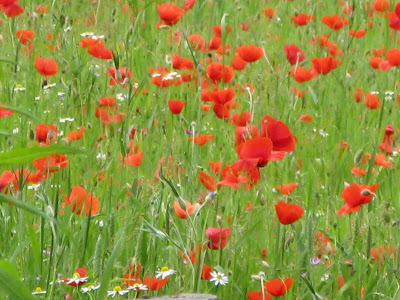 |
A closeup of some of the above poppies...sorry about the focus...
|


























